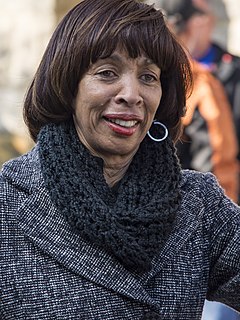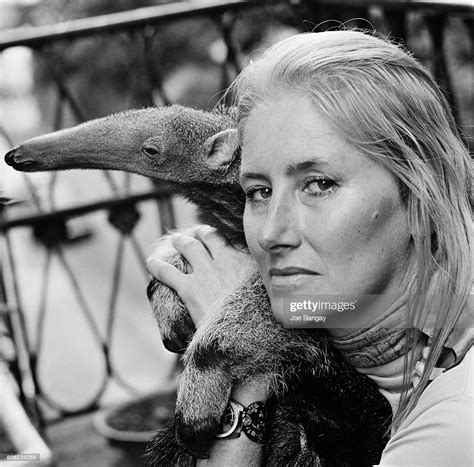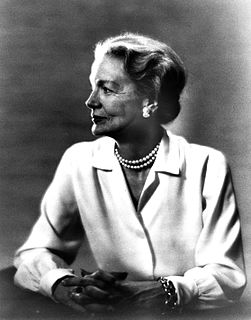A Quote by Charles Murray
The '60s were a disaster in terms of social policy. The elites put in place a whole set of reforms which I think fundamentally changed the signals and the incentives facing low-income people and encouraged a variety of trends that soon became self-reinforcing.
Related Quotes
It became obvious to me that the generation who changed the world were my parents' generation, and not only in terms of the Second World War, but if you look at all the social legislation of the '60s - abortion, homosexual law reform, equal pay - it wasn't done by my generation; it was done by people who were adults.
The truth is that political consciousness in this country is pretty low... To the degree that we can help educate and organize people around the most important issues facing their lives and show that there is support for fundamental changes in the way we do business in the United States of America in terms of income inequality, in terms of low wages, in terms of disastrous trade policies, in terms of being the only major country not to have a national healthcare program - that's success.
The major economic policy challenges facing the nation today - pick your favorites among the usual suspects of low public and household savings, concerns about educational quality and achievement, high and rising income inequality, the large imbalances between our social insurance commitments and resources - are not about monetary policy.
When you compare what people endured in the South in the 60s to try to get the right to vote for African Americans, and to compare what people were subjected to there to what happened in Philadelphia - which was inappropriate, certainly that . . . to describe it in those terms I think does a great disservice to people who put their lives on the line, who risked all, for my people.
For me to come in as the mayor already recognizing some of the problems that we were facing and also having put some of those reforms in place, I recognize what the advocates were talking about. I also recognize what the police department`s concerns were and what the community in general was concerned about.
I suddenly became strangely inebriated. The external world became changed as in a dream. Objects appeared to gain in relief; they assumed unusual dimensions; and colors became more glowing. Even self-perception and the sense of time were changed. When the eyes were closed, colored pictures flashed past in a quickly changing kaleidoscope. After a few hours, the not unpleasant inebriation, which had been experienced whilst I was fully conscious, disappeared. What had caused this condition?
You know, the elites always want to shame the poor - right? - and everyone else. I mean, the fact is, this economy is based on 70 percent of the people driving consumer demand. If people do not purchase goods and services, this economy will grind to recession. And that is why, if you are going to do a tax cut, it ought to really be aimed at low-income and middle-income people.
This separation of government from people, this widening of the gap, took place so gradually and so insensibly, each step disguised (perhaps not even intentionally) as a temporary emergency measure or associated with true patriotic allegiance or with real social purposes. And all the crises and reforms (real reforms, too) so occupied the people that they did not see the slow motion underneath, of the whole process of government growing remoter and remoter.
I see social media mainly just talked about as if it has just changed us technologically and in terms of data. I think it has changed absolutely everything. It has changed truth, it has changed culture. It has certainly changed the way that we relate to each other and in a very short amount of time.
Our parents, our tribesman, our authority figures, clearly expect us to be bad or anti-social or greedy or selfish or dirty or destructive or self-destructive. Our social nature is such that we tend to meet the expectations of our elders. Whenever this reversal took place and our elders stopped expecting us to be social and expected us to be anti-social, just to put it in gross terms, that's when the real fall took place. And we're paying for it dearly.
When two working people decide to marry, their federal income tax is usually increased. As soon as one spouse earns at least 20 percent of a married couple's total income, the couple pays a 'marriage tax.' ... The United States is the only major industrialized nation in the free world in which the tax cost of the second [married] earner's entry into the work force is higher than that of the first. On one hand, our government's social policy is to help working women earn equal salaries to those of men, but on the other we have a tax structure that penalizes them when they do so.





































